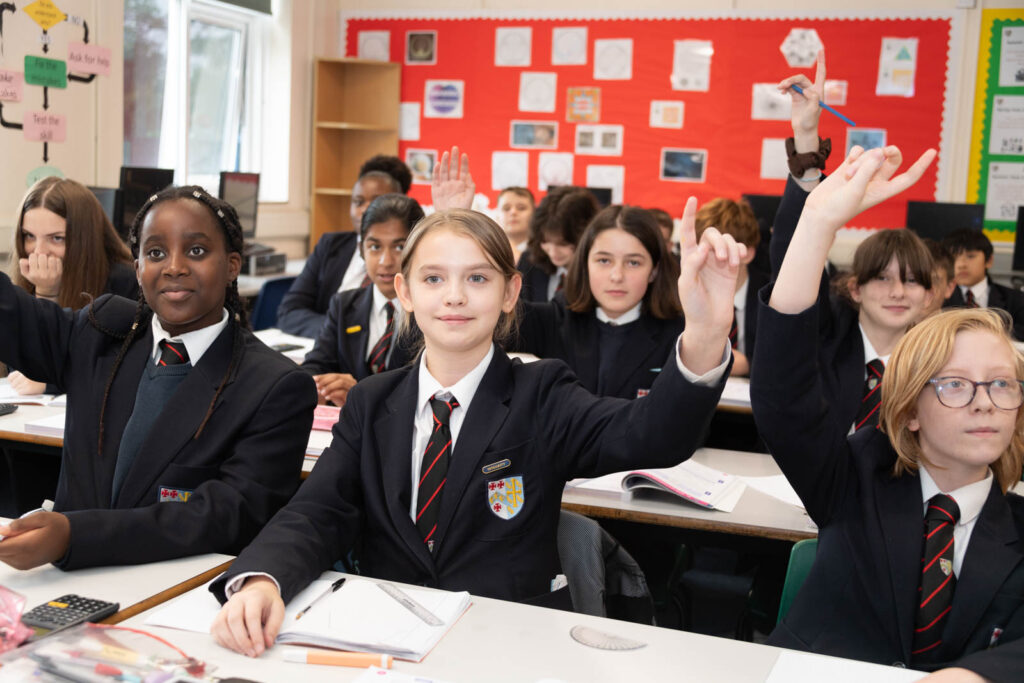Home » Key Information » Pupil Premium

The pupil premium grant is funding to improve educational outcomes for disadvantaged pupils in state-funded schools in England. Research shows that pupils who come from disadvantaged backgrounds often do not attain as well as their peers and they often face extra challenges. As a Catholic School, everything we do has faith as its foundation; in the book of Genesis it says, “The Lord, before whom I walk, will send his angel with you and make your way successful” and this sums up our vision for our disadvantaged pupils. We want every pupil at Archbishop Ilsley Catholic School to be successful no matter their background or financial situation. Our aim is to expose our pupils to as many opportunities as possible, ensure they receive excellent teaching from inspirational teachers and imbue a ‘can do’ attitude. Any financial barriers that exist should be alleviated by the premium; pupils who receive it should have the same opportunities as their peers.
1. Ensure we have quality first teaching within the classroom, where teaching is built around very high expectations for all and positive relationships are formed between pupil and teacher. We deliver a knowledge rich curriculum and use a series of strategies to teach and embed these using evidence based research.
2. Ensure we have targeted academic support which will take place through revision sessions and structured intervention.
3. Employ wider strategies, focus on careers, providing equipment and resources and well-being. As well extra-curricular activities, monitor attendance and raise the cultural capital and aspirations of our pupil premium students.
We recognise that all children and the challenges that they may face will be different. However, there are some common features, these include:
Some PP pupils may have lower attainment and make less progress than they should. At Archbishop Ilsley Catholic School we believe that the reason for this is not cognitive but experiential.
In order to address this we:
Have a well designed and sequenced curriculum in all subjects. The curriculum contains curated and well sequenced knowledge that allows pupils to develop conceptual understanding. It also allows pupils to apply knowledge previously learnt in new and sometimes unfamiliar contexts. Knowledge is not left behind, it is revisited throughout all key stages. The curriculum assumes nothing in terms of prior knowledge. The content that is taught is well considered. It is based upon the principle of which knowledge yields the greatest cognitive benefit (Gateway knowledge/concepts).
Plan challenging, inclusive lessons. Teachers are clear about what is to be learnt and plan lessons that enable students to develop their knowledge and understanding within subject areas.
Design and use informative and equitable assessments. All assessment is decision driven and formative. Teachers and subject leaders are clear about the purpose of the assessment and when this information should be gathered. Learners are provided with accurate feedback that enables them to further develop expertise in the subject. Assessment information informs future teaching and curriculum planning. This could mean re-teaching topic areas and planning in further stage points to establish if gaps have been closed.
Develop the cultural capital of our pupils by offering a wide range of educational visits and outside speakers. All of these are subsidised.
Employ a dedicated team to monitor attendance and liaise with parents and carers. For those pupils who need further support to maintain a good attendance in school we have a mentoring and pastoral support team.
Plan for reading, including the teaching of reading in all subject across the curriculum. To monitor progress we use accelerated reader. Results of testing are regularly reported to parents.
Have a designated teacher who coordinates careers events and information across the school. This includes the planning of lessons for all years in the school. We also employ a careers advisor who gives one to one advice to all pupils in the school.
We also focus on the following areas:
Through the implementation of a variety of strategies we aim to achieve the following:
Proudly part of the St. Teresa of Calcutta Multi Academy Company.
Registered Company No. 11844357. Registered Address:
St Joseph’s House | 1157 Warwick Road | Acocks Green | Birmingham | B27 6RG
Tel: 0121 706 4200 | info@stocmac.org.uk
© 2024 All Rights Reserved.